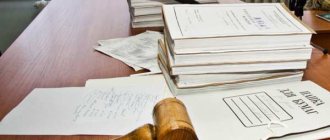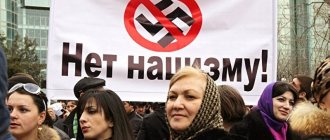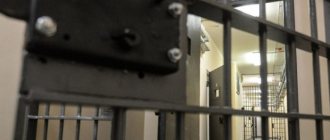Confiscation of property means its forced and gratuitous seizure from the owner who has committed a certain offense. This procedure is carried out in favor of the state or the victim and is regulated by Civil, Administrative and Criminal Law, in particular, Art. 235, 243 Civil Code and 104.1 Criminal Code. If the application of a measure implies the termination of property rights, it requires the mandatory presence of an appropriate court decision (Part 3 of Article 35 of the Constitution).
Features of modern confiscation
Since 1997, confiscation of property has been a type of punishment provided for by the Criminal Code for especially serious crimes, as well as those committed for mercenary reasons. An example of this is the notorious dispossession of wealthy peasants, who were deprived of all land, tools of production and forcibly resettled to remote areas of the region.
However, in 2003, confiscation was excluded from the punishment system and currently operates as an additional criminal law measure. Changes regarding the legal nature and application of confiscation of property are as follows:
- Not any property is confiscated, as was the case before, but its specific types, listed in Art. 104.1 CC.
- Property can be confiscated not only for the benefit of the state, but also for the benefit of the victim.
- This measure is applied when committing illegal acts mentioned in Art. 104.1 of the Criminal Code, and is not a punishment provided for by a specific article of the Criminal Code.
FATF Recommendations
FATF recommended that Russia legislatively expand the list of assets and the circle of persons subject to the law on monitoring the compliance of civil servants' expenses. A similar instruction was given to the government. The Cabinet of Ministers, with the participation of the Prosecutor General’s Office and the Supreme Court, was supposed to prepare proposals to expand the types of property for confiscation, as follows from the National Anti-Corruption Plan for 2018–2020.
The press service of the Ministry of Justice did not answer RBC's questions about initiatives to toughen penalties for officials for illegal enrichment, saying that draft regulations are being developed in accordance with the National Anti-Corruption Plan.
The list of assets that can be seized is already quite voluminous, partner Dmitry Gorbunov commented to RBC. “The State Duma regularly receives various initiatives to tighten the legal status of officials. However, there has not yet been any global bill, and the problem of corruption at the legislative level has not been resolved even with fairly severe penalties,” the lawyer believes.
The prosecutor's office does not show due attention to the problem of property of officials, which they clearly cannot afford, says partner of the law firm LDD, lawyer Vladislav Shkurikhin, noting that the mechanism of confiscation without a conviction is used extremely rarely. “As a rule, authorities check officials in more detail as part of the investigation of criminal cases. Then property registered in the name of third parties comes to light,” the lawyer points out.
What property can be seized
According to Art. 104.1 of the Criminal Code, confiscation applies to property:
- Obtained as a result of unlawful actions.
- Illegally transported across the border of the Russian Federation and states included in the EurAsEC Customs Union.
- Converted from illegally obtained funds, including money and valuables. For example, a house purchased with funds received from illegal drug trafficking (read more about the article for distribution and storage here)
- Intended for terrorist activities - funds, weapons, posters and equipment.
- With the help of which the crime was committed - the weapon or means.
The Criminal Code of the Russian Federation assumes confiscation of property in relation to material objects.
For example, if the rights to the results of intellectual work are violated, its material products will be confiscated.
If stolen property or the profit brought by it was added to legally acquired property, the part that corresponds to the appropriated property is subject to confiscation (Part 2 of Article 104.1 of the Criminal Code).
The criminal may also transfer illegally obtained property to a third party or organization. In this case, the property will be confiscated if the new owner knew or should have known about the method of obtaining it (Part 3 of Article 104.1 of the Criminal Code). If it is impossible to confiscate the property appropriated by the criminal, confiscation of its monetary equivalent is allowed.
Problems with the use of punishment
This form of liability is assigned in strictly prescribed cases by law. But even here its purpose is not without certain problems. For example, the Criminal Code of the Russian Federation must not only provide compensation for damage, but also not violate the rights of the criminal. However, there is one more feature here. Compensation is subject to not only material, but also moral damage to the victim.
The court's decision on confiscation must be reflected in the verdict. There are no other documents confirming the imposition of such a punishment. At the same time, such a decision should be reflected precisely in the operative part of the sentence, since it is there that the fact of finding a person guilty of committing a crime is stated.
Property not subject to confiscation
As Art. 446 Code of Civil Procedure, a person cannot be deprived of:
- the only residential premises, if he has no other places to live, and the land under it;
- furniture, stoves, dishes and other essential household items;
- clothes, toys and other things belonging to children;
- fuel used for cooking and heating;
- seeds intended for sowing;
- livestock and poultry, serving as the only source of food. In this case, complete confiscation of property means the death of the defendant and his family;
- equipment and tools necessary for earning money, unless the court has imposed a ban on the implementation of this work activity;
- funds in the amount of the subsistence level;
- child benefits, pensions and other social benefits.
Also, property belonging to the debtor's spouse cannot be seized. Evidence that the confiscated property is not in the possession of the defendant may include:
- sales receipts;
- warranty cards;
- other documents identifying the owner;
- witness statements.
General definition
Confiscation of property is a compulsory measure, which is characterized by the gratuitous transfer into state ownership of property belonging to the convicted person. It is carried out only by court decision.
This measure of punishment can be carried out as a main or additional punishment. All cases of application of confiscation are regulated by a special norm of legislation. The implementation of this measure depends on the court's decision.
In what cases is property confiscated?
The legislation prescribes the confiscation of property for a crime or misdemeanor specified in Criminal or Administrative Law.
Confiscation for criminal offenses
Property is confiscated when certain crimes are committed, classified under 74 articles of the Criminal Code, a list of which is given in Art. 104.1 of the Criminal Code and is not subject to expansion. The list includes crimes relating to:
note
According to the law, disclosure of personal data may result in a fine or imprisonment of up to 4 years. And in especially serious cases (for example, the onset of grave consequences for a minor, which may be expressed in mental disorder or harm to health), the term of imprisonment can be increased to 5 years. Read more in this article
- Production activities:
- production and sale of goods without labeling (Article 171.1);
- organization of illegal gambling activities (Criminal Code of the Russian Federation Art. 171.2);
- laundering of illegally obtained money (Article 174);
- legalization of property obtained through criminal acts (Article 174.1);
- disclosure of confidential information of commercial organizations, banks and tax institutions (Article 183);
- falsification of the results of a contest or competition (parts 3 and 4 of Article 184).
- Financial turnover:
- use of counterfeit banknotes and securities (Article 186);
- turnover of means of payment (Article 187);
- export of weapon parts and military equipment (Article 189);
- timber harvesting (Article 191.1);
- bribes (parts 5–8 of Article 204).
- Extremist activities:
- committing terrorist acts (Article 205);
- assistance in committing the crime of terror (Article 205.1);
- inducement to commit a terrorist act, including on Internet resources (Article 205.2);
- taking a hostage (Articles 205.3, 205.4, 205.5, 206);
- Criminal communities:
- creating an illegal armed association or being part of it (Article 208);
- bandit activity (Article 209);
- creating a criminal group and joining it (Article 212);
- mass riots (Article 212);
- carrying and trafficking of weapons and ammunition (Article 222);
- attacks on sea vessels (Article 227).
- Narcotic substances:
- sales (Article 228.1);
- illegal trafficking (part 2 of article 228.2);
- production and sale of precursors (Article 228.4);
- theft (Article 229);
- cultivation of hemp, marijuana and other narcotic plants (Article 231);
- organizing a brothel (Article 232);
- sales of potent drugs and poisons (Article 234);
- manufacturing of medicines (Article 235.1);
- others.
- Other.
Confiscation in administrative law
The law on confiscation of property in the words of Art. 235 of the Civil Code provides for cases of voluntary and forced alienation of property, the cost of which may or may not be reimbursed. This article defines forced and gratuitous confiscation for:
- property serving as compensation for obligations assumed by the owner;
- contraband goods;
- illegal money transfers to banks of other countries;
- narcotic substances intended for illegal use;
- instruments of an administrative offense, which is carried out without a court order, but can be challenged by the defendant (Article 3.7 of the Code of Administrative Offenses);
- other property.
How illegal wealth is confiscated in Russia
In December 2012, Russian President Vladimir Putin signed the law “On control over the compliance of expenses of persons holding government positions and other persons with their income,” which introduced a mechanism for confiscating the wealth of officials whose expenses exceed their official income. By law, law enforcement agencies must pay attention to a civil servant if he or his family spends more than the income declared over the last three years. The Prosecutor General's Office may require the official to justify his expenses. If an official cannot prove the legality of the origin of funds and property, he must be dismissed from service, and the wealth must be turned into state revenue.
In November, the Constitutional Court allowed the seizure of funds from distant relatives and acquaintances of corrupt officials. The issue was considered in connection with the case of former police colonel Dmitry Zakharchenko.
Seized funds and proceeds from the sale of assets are transferred to the federal budget. The Ministry of Finance receives cash and funds from the sale of confiscated property and luxury goods, and Gokhran receives precious metals and stones, jewelry and bullion.
However, unjustified wealth is confiscated from officials only in cases of significant discrepancies between officially declared income and expenses, FATF notes. According to the latest data for 2021, provided by the FATF, 8.8 billion rubles were confiscated from Russian officials. inexplicable wealth.
In 2021, the Prosecutor General's Office filed lawsuits with the courts demanding the seizure of 500 million rubles worth of officials' property purchased with illegal proceeds, Russian Prosecutor General Yuri Chaika said in March.
Seizure of property under obligations
As compensation for credit debt, property of similar value is confiscated:
- money;
- Jewelry;
- real estate;
- vehicles;
- valuable interior items;
- Appliances.
The defendant can return the seized property by paying off the debts within 5 days. Otherwise, the property is put up for sale and the proceeds are turned over to the lender.
A representative of the Investigative Committee will talk about the rules for confiscation of property in the video below:









